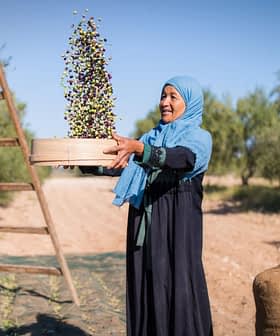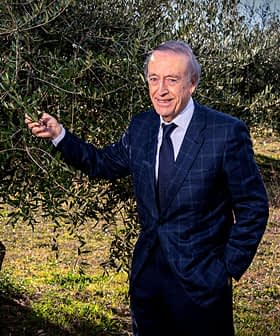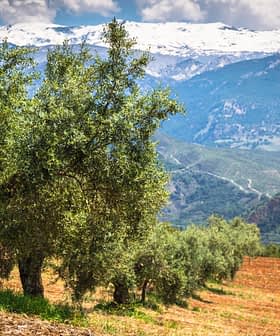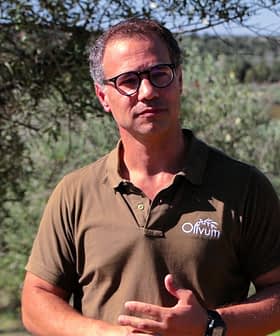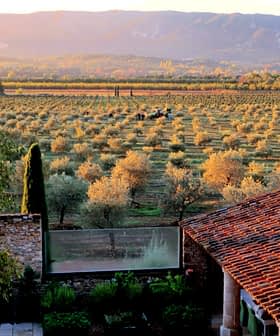In Portugal, a Tough Season Ends with Stronger Determination
One industry veteran characterizes the 2022 harvest in Portugal as a perfect storm. Still, a common commitment to quality remains unshaken.
 (Photo: Casa de Santa Amaro)
(Photo: Casa de Santa Amaro) Portugal has received numerous awards for high-quality extra virgin olive oils at the NYIOOC World Olive Oil Competition, with 19 Gold Awards and 16 Silver Awards being given to oils from the latest harvest, which exceeded expectations despite weather challenges. Producers such as Esporão, Viveiros Monterosa, Casa Agrícola Roboredo Madeira, Monte do Camelo, Cooperativa de Olivicultores de Valpaços, and Trás-os-Montes Prime have been recognized for their commitment to quality and the unique flavors of their olive oils, contributing to the international reputation of Portuguese olive oil.
Thirty-five high-quality extra virgin olive oils from Portugal have been awarded over the past month at the NYIOOC World Olive Oil Competition.
The 19 Gold Awards and 16 Silver Awards are the product of Portugal’s latest harvest, which was initially forecasted to yield less than 100,000 tons of olive oil.
We remain committed to protecting what is ours. The traditional olive groves, the landscape, the people and the heritage that is under threat. We did less this year, but we did it well.
However, the yield had already surpassed 126,000 tons by the end of December, despite the long-running drought and weather extremes troubling local producers.
“We think the fact that Portuguese extra virgin olive oil wins more and more awards at an international level is very important for the image of the national extra virgin olive oil,” Mariana Matos, the secretary-general of Casa do Azeite, the Portuguese olive oil association, told Olive Oil Times.
See Also:Best extra virgin olive oil From Portugal“It demonstrates without any doubt the qualitative effort that the whole sector has made over the last few years, along with the enormous development of Portuguese production,” she added. “I think that Portuguese olive oil brands are to be congratulated.”
Matos said winning accolades comes with the responsibility to improve the quality of their oils, adding that these awards strengthen the image of Portuguese brands, both nationally and internationally.
“The growth of national exports over the last decade has been remarkable,” she said, “around 150 percent in volume and almost 200 percent in value.”
While production and exports have steadily grown, olive oil consumption in Portugal has remained relatively stable at about seven kilograms per capita annually.
Among the winning producers celebrating their NYIOOC success is Esporão, from Alentejo, Portugal’s largest olive oil-producing region. The producer won two Gold Awards for its organic medium Arbequina blend and its medium Cobrancosa blend.
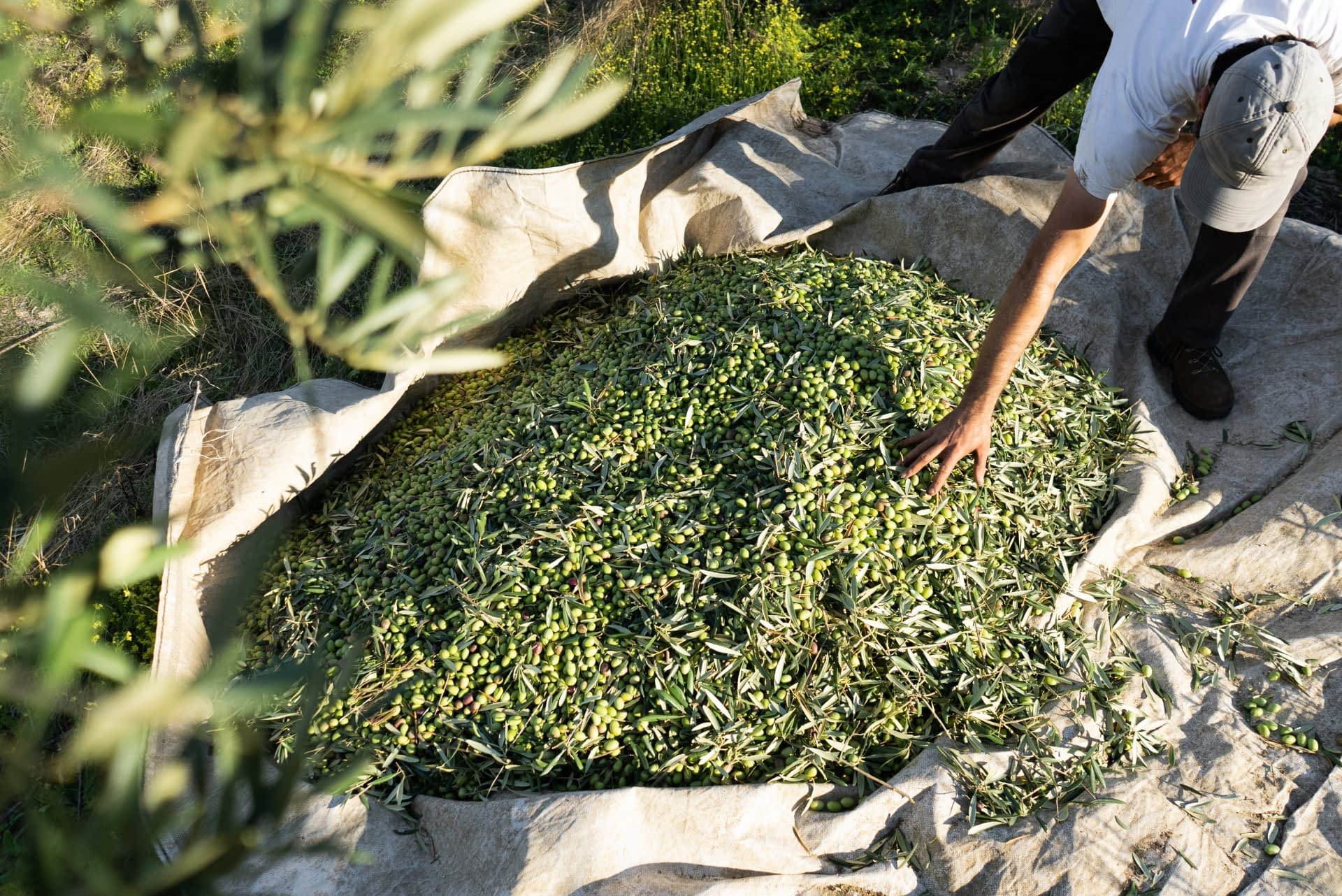
(Photo: Esperão)
“Our mission is to make the finest products from what nature provides,” said Ana Carrilho, the director of Esporão’s olive oil production, brand and markets department. “These awards are proof of our commitment to quality.”
“We are very proud that our consumers can experience and enjoy our finest olive oils that come from olive trees from Alentejo, Portugal, which have been planted over the years and are still here teaching and inspiring us every day,” she added.
However, Carrilho said producing Esporão’s extra virgin olive oil was by no means a trouble-free experience.
“We faced a harvest full of challenges,” she told Olive Oil Times. “Late frosts, high temperatures during flowering, a rainy spring and a hot summer that coincided with the off-year [in the natural alternate bearing cycle of the olive tree].”
“It was really the perfect storm,” Carrilho added. “These challenges had more impact on dryland olive groves and Portuguese varieties, resulting in a drop of about 70 percent in olive production.”
“Yet, we faced these challenges as opportunities to reinvent ourselves and learn,” she continued. “We remain committed to protecting what is ‘ours.’ The traditional olive groves, the landscape, the people and the heritage that is under threat. We did less this year, but we did it well.”
Carrilho said paying close attention to details helped Esporão win its two Gold Awards at the NYIOOC. “The characteristics of both olive oils make them unique,” she added.
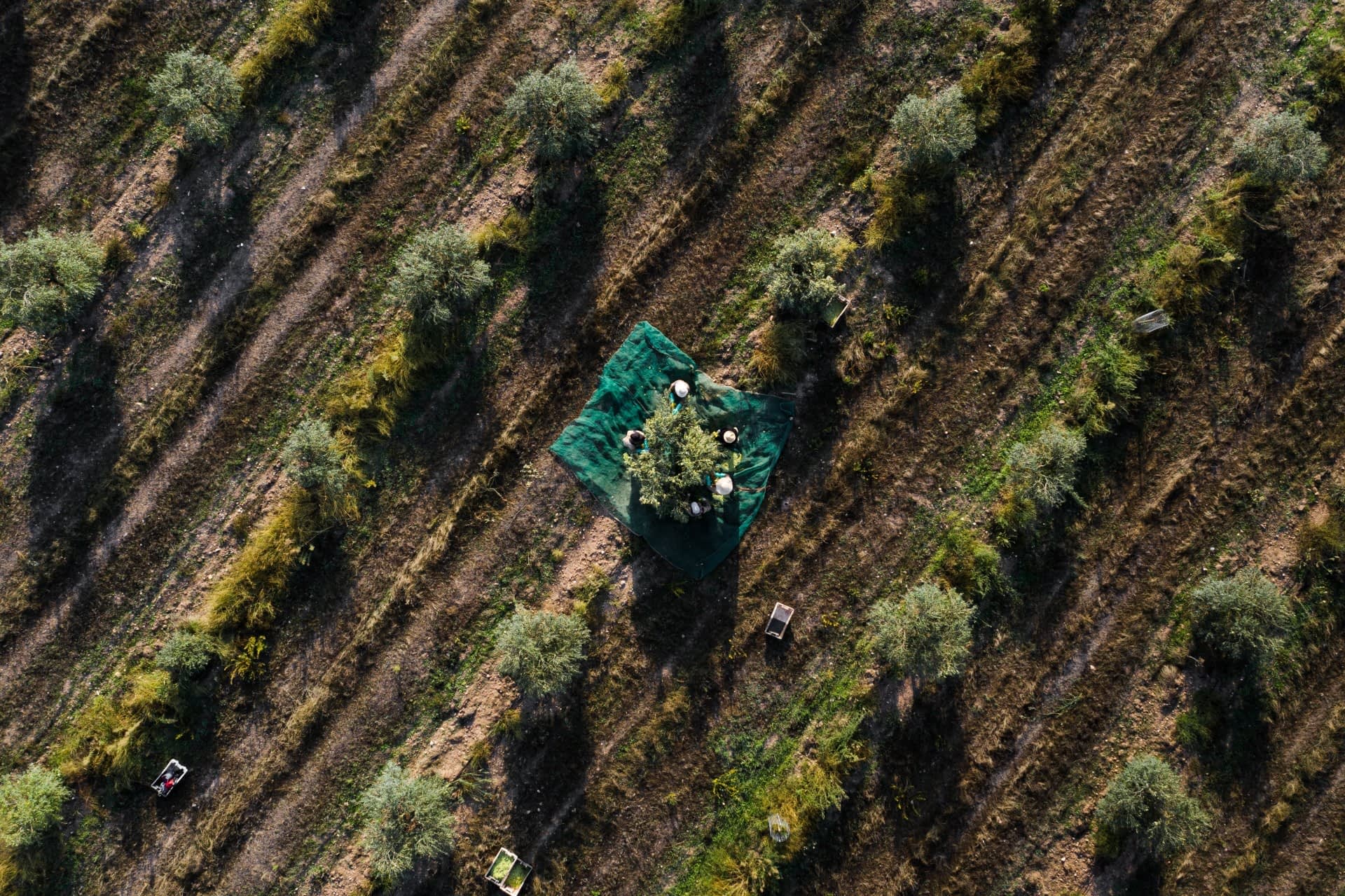
(Photo: Esperão)
Another producer from the south of Portugal, Viveiros Monterosa from the Eastern Algarve region, has been celebrating its Gold Award for its medium Macanilha de Tavira.
“Winning again is just wonderful,” sales representative António Duarte told Olive Oil Times. “It is recognition for the work we have been developing year after year, fine-tuning all the steps from the olive grove to the finished product. It is also an excellent marketing tool for the brand and all our commercial partners.”
“Currently, we are the only producers in the Algarve that can produce this level of quality, and that is also very important for the region, which is mainly known for tourism, sun, beach and golf,” he added.
Duarte took advantage of Algarve’s natural beauty by offering guided walking tours “so visitors can discover what high-quality extra virgin olive oil is and become attached to the brand and its exclusivity,” he said. “I am sure that in the near future, other producers will appear.”
“We have been working on this specific olive variety native to our region, Macanilha de Tavira, for 22 years, and it has adapted perfectly to the climate of the Algarve and is now very stable,” Duarte added. “So we can have similar oil profiles year after year. That helps a lot when deciding when to harvest and how to mill this specific variety.”
The team at Viveiros Monterosa had to get off to an early start to produce their extra virgin olive oil. Duarte said climate change had affected Viveiros Monterosa’s entire harvesting process.
“It seems that every year we start earlier, and that means we need to be ready a lot earlier than in previous years,” he said.
Another producer from Trás-os-Montes, Casa Agrícola Roboredo Madeira (CARM), won a Gold Award for its organic medium blend.
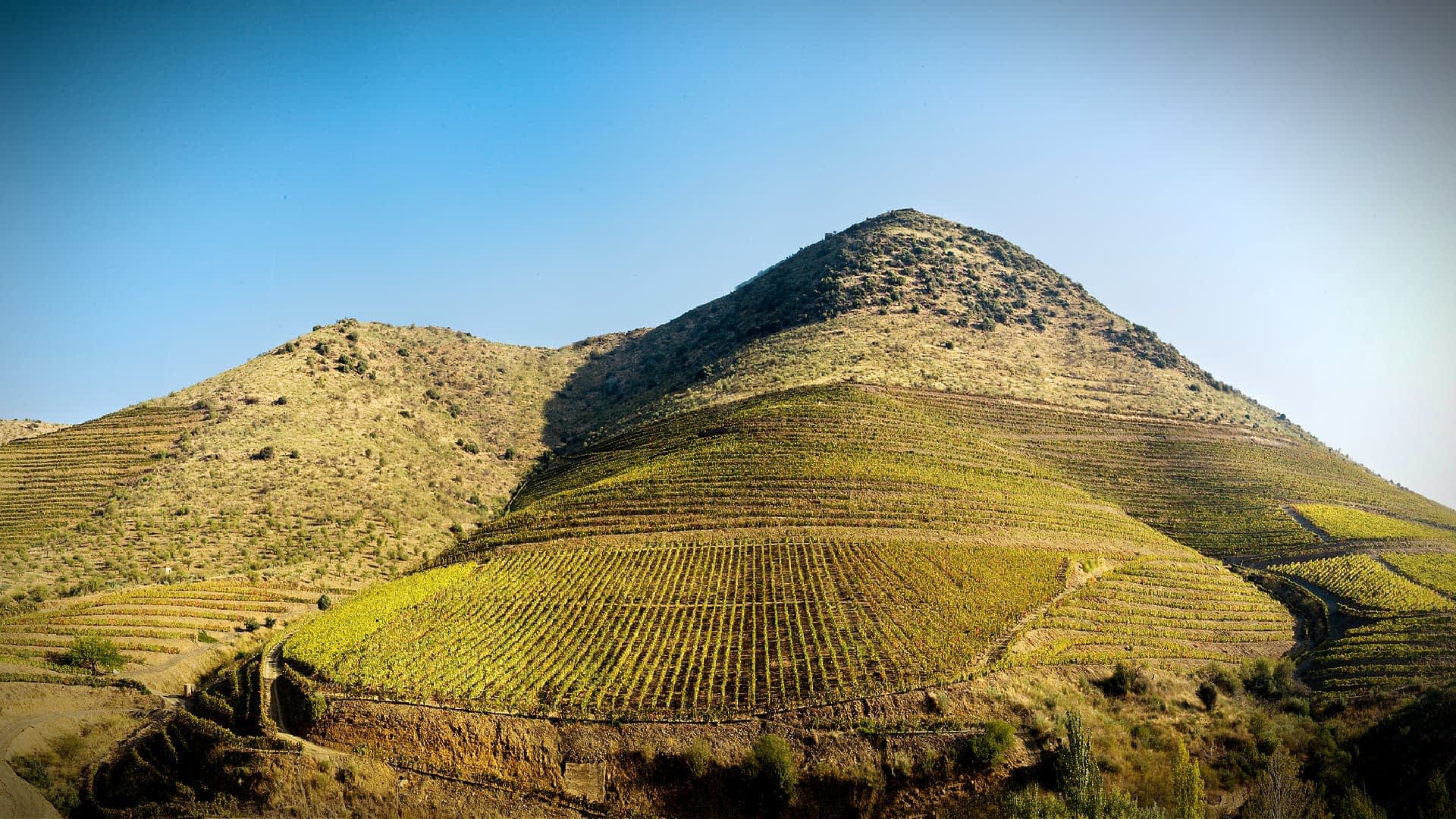
(Photo: CARM)
“For CARM, this award means that we are continuing on the right track and that the hard work we’ve put into a difficult harvest, such as this last one, was rewarded,” Miguel Azevedo Remédio, the company’s commercial director, told Olive Oil Times.
“It is recognition of the hard work we’ve put into our olive oils, and its shows consumers they can trust CARM as a brand that produces top quality olive oils,” he added.
Remédio said winning awards in international competition brings global recognition to Portugal. “For the Tras-os-Montes and Douro region, it is recognition of the quality we can get from old olive groves and extremely dry and poor soils,” he said.
CARM’s award-winning oil was produced from a difficult harvest. “The main challenge was related to the extremely dry year we had and the corresponding decrease in production,” he said. “In some of the old olive groves, we had an 85 to 90 percent decrease.”
However, Remédio added that there are some factors that make CARM’s oils stand out. “We believe the main factor is the quality of the fruit we get from old olive groves from the Douro Superior region. Of course, together with careful and hard work,” he said.
Further south, Monte do Camelo earned a Gold Award for its Tratturo de Fronteira brand’s robust Cobrançosa.
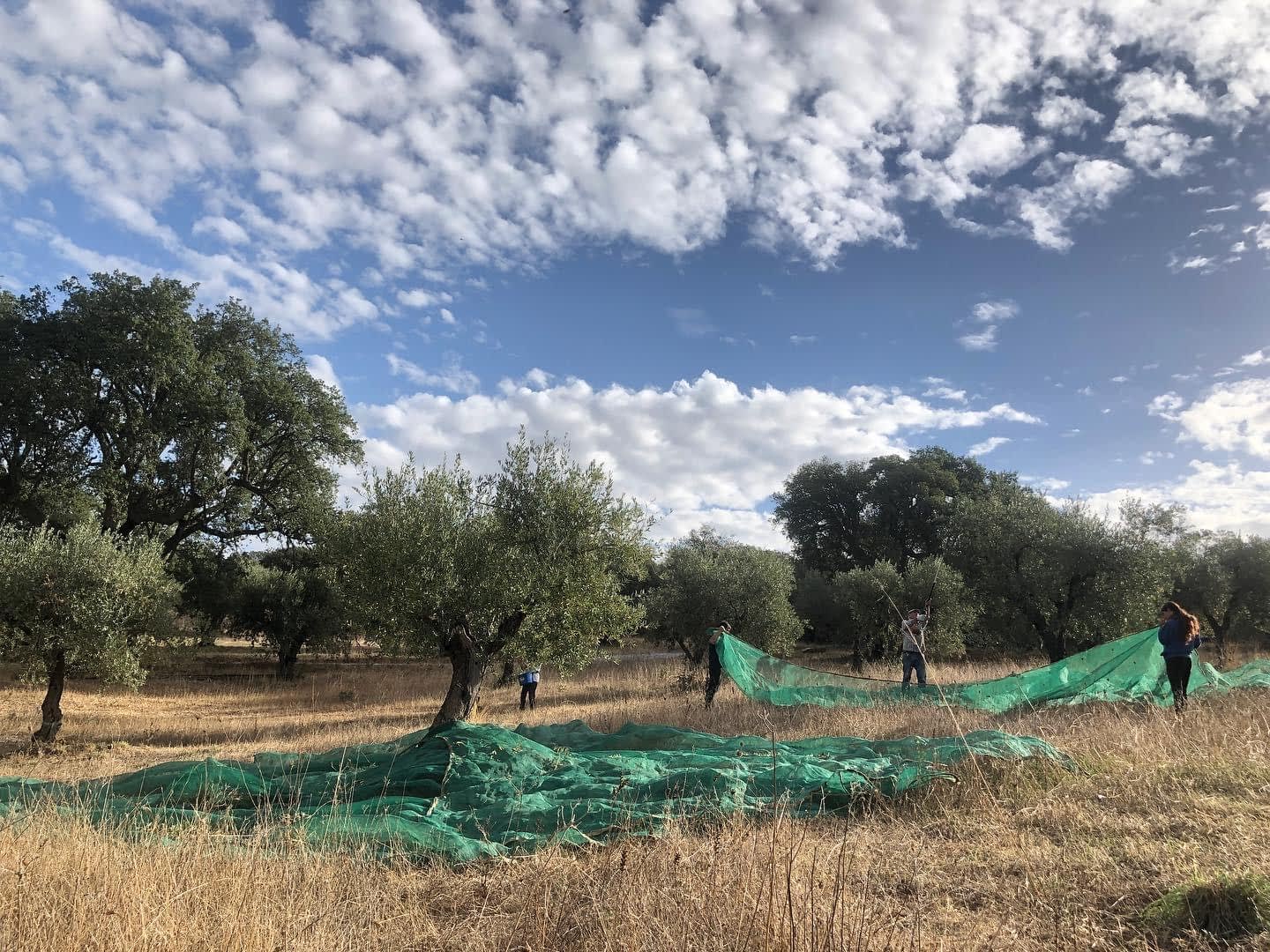
(Photo: Monte do Carmelo)
“Achieving a Gold Award right after a Silver in our first year at the competition is a great accomplishment, considering the magnitude of NYIOOC,” co-owner Ana Cardoso told Olive Oil Times. “We hope to live up to this in the future; we will work towards that for sure.”
“From our brand’s point of view, it is an enormous recognition for the work done,” she added. “It is an award that puts us alongside other great Portuguese producers, and it will absolutely increase the image of the quality that is made in Portugal.”
Cardoso said Monte do Camelo tried to improve its extraction and storage process in the past year. “A good and healthy olive is not enough to make an excellent extra virgin olive oil,” she added.
“The most difficult part was harvesting and milling with such high temperatures and with dry fruit, which made extraction difficult,” she said. “Also, being an olive grower and a miller at the same time requires flexibility and organizational capabilities.”
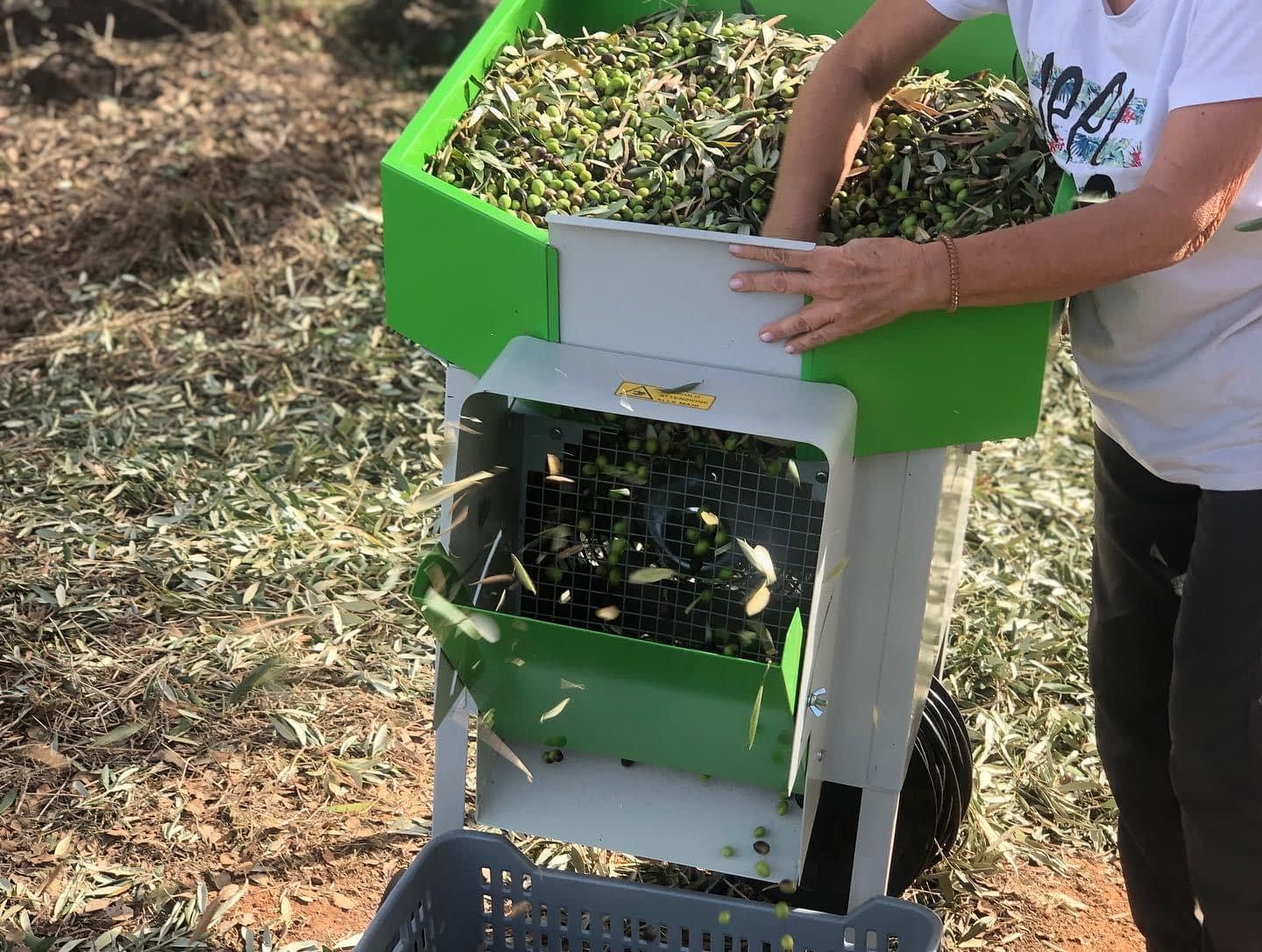
(Photo: Monte do Carmelo)
Cooperativa de Olivicultores de Valpaços, another Trás-os-Montes-based producer, won three awards for its Rosmaninho brand.
The company earned a Gold Award for its medium Cobrancosa and two Silver Awards for its medium Cobrancosa and medium blend.
“The feeling is excellent,” said José Ventura, the company’s general director and official taster, “as it rewards the effort, work and dedication of an entire team: the associates who produce the olives, the administration that manages the cooperative and the employees who carry out the tasks according to the established norms.”
“The awards contribute to greater visibility, notoriety and enhancement of our brand Rosmaninho,” he told Olive Oil Times. “They are an incentive to do even better, making this region of Trás-os-Montes and Portugal known to the whole world.”
“The terroir of Trás-os-Montes, the traditional rain-fed olive groves with indigenous varieties, the right time for harvesting and the controlled extraction of the oil,” he added, “give rise to unique flavors and aromas, with unique organoleptic characteristics, such as the high content of polyphenols.”
However, it was not easy to produce Rosmaninho’s award-winning oils. “The challenges were essentially the widespread scarcity of olives at around 50 percent less and drought as a factor of some concern,” Ventura said.
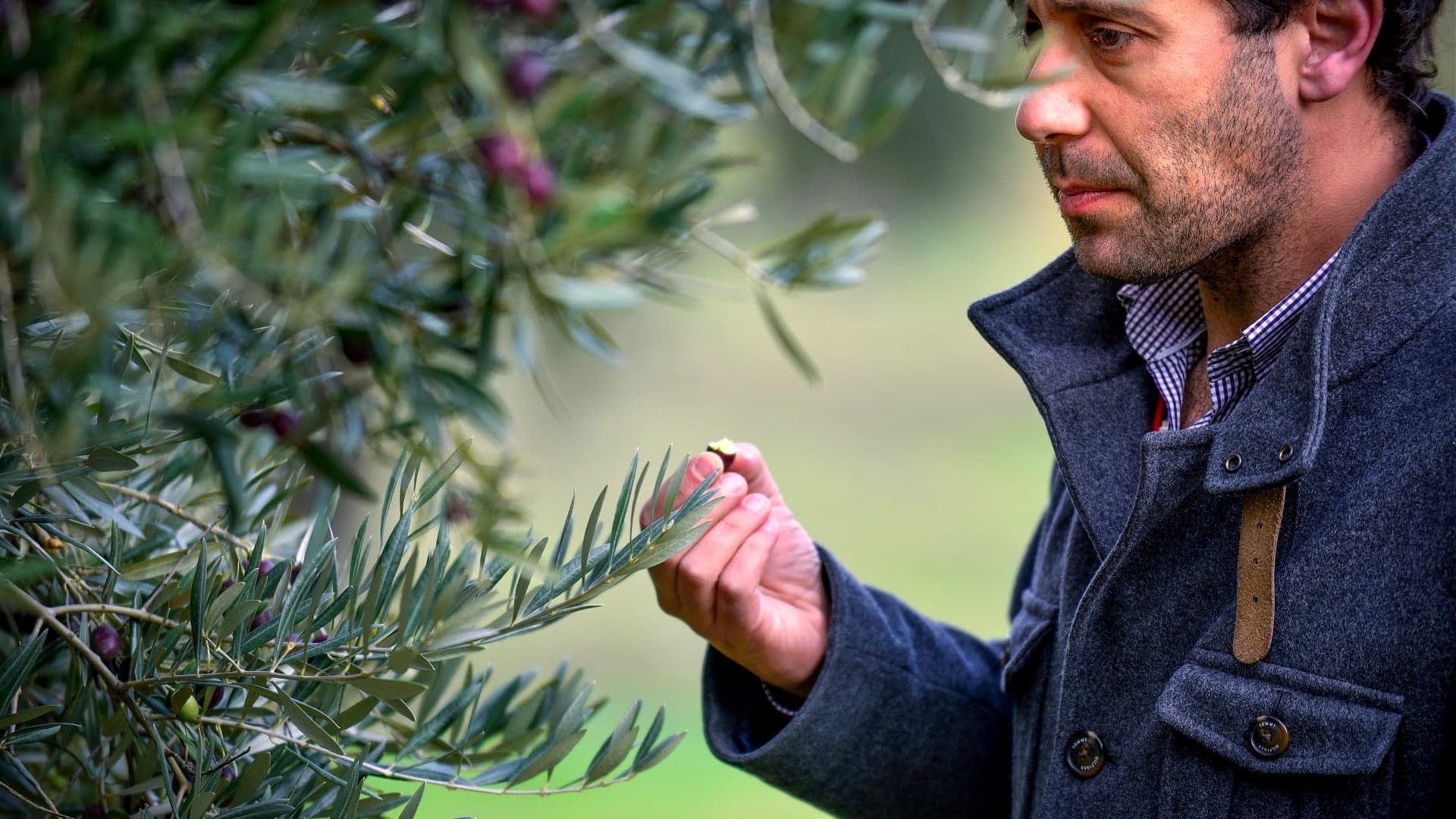
António Pavão
Nearby producer Trás-os-Montes Prime also earned three awards at the 2023 NYIOOC. The company won Gold Awards for its medium Cobrancosa blend and two medium blends, all bottled under the Casa de Santo Amaro brand.
“We understand that these three Gold Awards are the result of a huge effort by the whole Casa de Santo Amaro team that works daily to make this recognition possible,” co-owner António Pavão told Olive Oil Times.
The company’s harvest was 50 percent lower than the previous one. “But with all the team’s effort, dedication and professionalism,” he added, “we were able to harvest fresh and healthy olives and immediately produce these extra virgin olive oils of enormous quality in our mill.”
Pavão said that carefully blending native olive varieties helped their award-winning brands stand out.
“Perhaps our native olive tree varieties, the distinctive terroir of the Trás-os-Montes region, the dedication of our entire team and Francisco Ataíde Pavão – my brother – the extra virgin olive oil specialist who makes all our final blends,” he said.
“Winning these awards is very important for our Casa de Santo Amaro brand, Trás-os-Montes and Portugal,” Pavão added. “Fortunately, since 2016, we have seen our extra virgin olive oils awarded at the NYIOOC every year, demonstrating our quality harvest after harvest.”
Share this article



